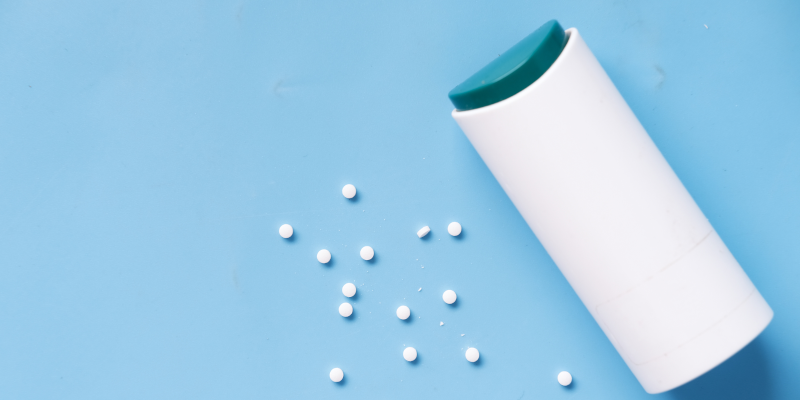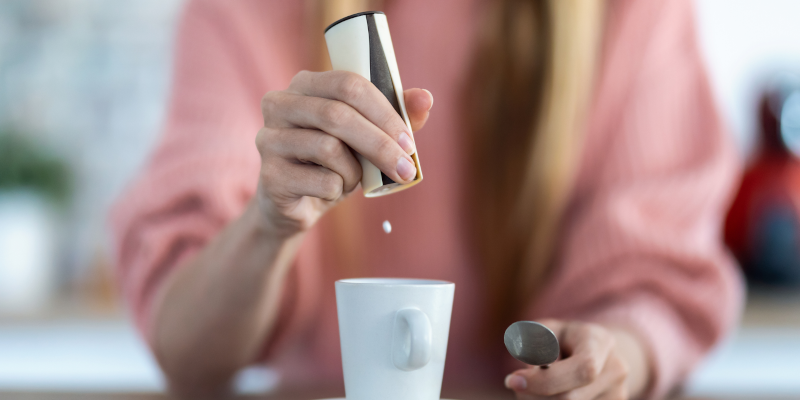- Researchers testing sugar substitutes discovered consuming two artificial sweeteners led to increased blood sugar levels.
- The sweeteners are used in branded products such as Sweetex and Splenda.
- While they’re advertised as a healthy alternative for those managing diabetes, new research shows they might actually impede blood glucose regulation.
Saccharin and sucralose are two artificial sweeteners that have been found to increase blood sugar or glucose levels.
These sweeteners are used in popular sugar substitutes, including Sweetex and Splenda, with both heavily marketed as a healthy alternatives to sugar.
Researchers at John Hopkins University in Maryland studied the effect of four sugar substitutes on the blood sugar of 120 healthy adults. None of the participants consumed low-calorie sweeteners six months before the trial started.
After dividing into six groups, the participants were given 1-gram packets of sweeteners. Over the course of two weeks, four of the groups consumed two packets of sweeteners three times a day.
Alongside sucralose and saccharine, the other sweeteners included in the study were aspartame and stevia.
Rather than taking another type of sweetener, the fifth group consumed equivalent amounts of glucose powder, while the last group had no supplement.
By wearing continuous blood glucose monitors (CGMs), the participant’s blood sugar levels could be monitored throughout the study, including a week before and after the experiment took place.
Glucose tolerance tests were also administered at nine points throughout the study, with the aim to measure how effectively the body was regulating blood sugar levels after consuming glucose.
It was found that the participants in the saccharin and sucralose groups had markable spikes in their blood sugar following the glucose tolerance tests.
However, the glucose levels stabilised, and in some cases decreased in the other groups, suggesting that it was not the glucose in the sweeteners responsible for the rises in blood sugar.

After testing the participants’ stool and saliva samples, the researchers discovered that the sweeteners were influencing changes in bacteria in the gut and mouth. Additionally, corresponding changes were also identified in blood samples.
It was noted that the blood metabolite changes in the saccharin and sucralose groups were similar to those in people with diabetes or vascular diseases.
It’s now believed that microbial changes caused the spikes in blood glucose, impairing the body’s ability to effectively regulate glucose levels due to processes controlled by the microbiome.
People with type 2 diabetes have an impaired ability to regulate their blood glucose and often have to restrict their sugar intake. If poorly managed, excess blood sugar can harm the body and lead to diabetes-related complications such as nephropathy, neuropathy and retinopathy.
With brands such as Sweetex and Splenda advertising their sugar substitutes as healthy alternatives for people living with diabetes, the study’s results indicate that these sugar substitutes may actually be harmful to those with the metabolic condition.
The researchers believe longer studies should now take place to identify if the blood sugar spikes from sweeteners can cause health problems.
This study was originally published in Cell Press




